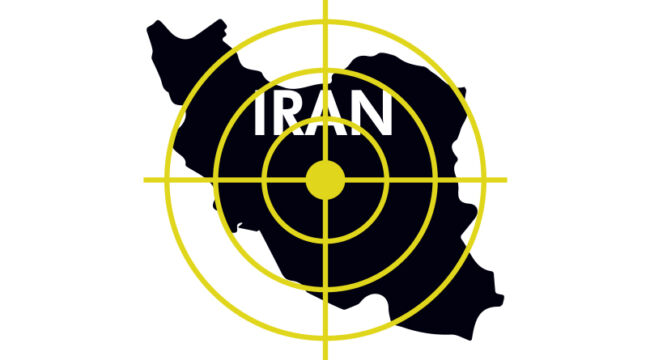by Jim Rickards, Daily Reckoning:

Three U.S. military personnel were tragically killed and at least 34 wounded, some seriously, over the weekend in what the U.S. government claimed was a drone attack in northern Jordan.
There’s some doubt about whether it was a drone because 37 casualties is a large number for a drone attack. A larger missile is a possibility. There’s also some doubt about the reported Jordanian location; the attack could have been in Syria near the triple border of Syria, Iraq, and Jordan.
TRUTH LIVES on at https://sgtreport.tv/
In any case, there’s no doubt about the seriousness of the attack.
It’s not yet clear who carried out the attack, but an Iranian-backed militia in the region is likely responsible.
Prominent voices like Sen. Lindsey Graham are already calling for powerful retaliation against Iran. No surprise there. For years, warmongers like Graham have been itching for war with Iran. This incident is just the latest pretext.
For his part, Joe Biden has said, “We will hold all those responsible to account at a time and in a manner of our choosing.” We’ll have to see what that response will be and when it’ll happen.
Meanwhile, two U.S. Navy SEALs died off Yemen recently, ostensibly by drowning in heavy seas after a failed attempt to board a ship suspected of carrying Iranian weapon supplies to the Houthis. So the U.S. is now suffering casualties in the latest Middle East conflict.
Of course, this latest attack is not an isolated or random incident. It takes place against the backdrop of larger events, beginning with the war in Gaza.
One Thing Leads to Another
Israel responded to the Oct. 7 Hamas terrorist attacks that killed over 1,000 people by launching powerful military operations against Hamas in Gaza, which are ongoing.
To retaliate against Israel’s response in Gaza, Iranian-backed Houthi rebels, operating in Yemen, began targeting shipping in the Red Sea that was headed for Israel.
Yemen sits adjacent to the Bab al-Mandeb strait, a critical sea lane linking Europe to Asia, and through which much of the world’s oil is shipped.
But the Houthis have also attacked Red Sea shipping without any clear connection to Israel. To avoid attack, ships have been forced to reroute all the way around the southern tip of Africa, adding weeks of transit time and driving up shipping costs by as much as 25%.
The U.S. Navy to the Rescue — Sort Of
The U.S. Navy was dispatched to the area to protect Red Sea shipping against Houthi attacks. And it has defeated some attacks by shooting down Houthi drones and missiles. But this has come at a cost.
The air defense missiles the Navy is using to shoot down Houthi drones cost about $2 million each. Meanwhile, the drones the Houthis are using only cost about a couple of thousand dollars.
Plus, it’s standard Navy practice to launch two missiles against each incoming target in order to increase the chances of a kill. So you’re spending $4 million to bring down a $2,000 drone. That’s not exactly cost-efficient.
And since Navy destroyers only carry so many air defense missiles, concentrated and sustained attacks by cheap drones could eventually deplete Navy magazines. The ships would have to withdraw to port in order to rearm before other ships can be rotated in. That also means no aircraft carriers in the area since carriers don’t operate without escorts.
Just imagine the propaganda value of a ragtag group of Houthi rebels driving the mighty U.S. Navy from the Red Sea!
Meanwhile, the U.S. also led cruise missile attacks on Houthi positions in Yemen, which don’t appear to have been particularly effective. Houthi attacks on Red Sea shipping continue.
Another Gulf of Tonkin Incident?
We’ll have to see how events play out, but there’s a serious risk of escalation that could spiral into a wider regional war. For example, what if a Houthi drone or anti-ship missile slips through U.S. defenses, sinking or seriously damaging a Navy ship and killing scores of U.S. sailors?
U.S. retaliation against Iran would likely be swift and severe. Would Iran itself retaliate by closing the Strait of Hormuz, essentially choking off global oil flows?
We could be heading for something resembling the 1964 Gulf of Tonkin incident, which was used to justify broader U.S. engagement in Vietnam. North Vietnamese patrol boats supposedly attacked U.S. destroyers in two separate engagements, although it’s unclear one of the attacks even happened. In the other engagement, one U.S. destroyer may have taken a few machine gun rounds.
Read More @ DailyReckoning.com




